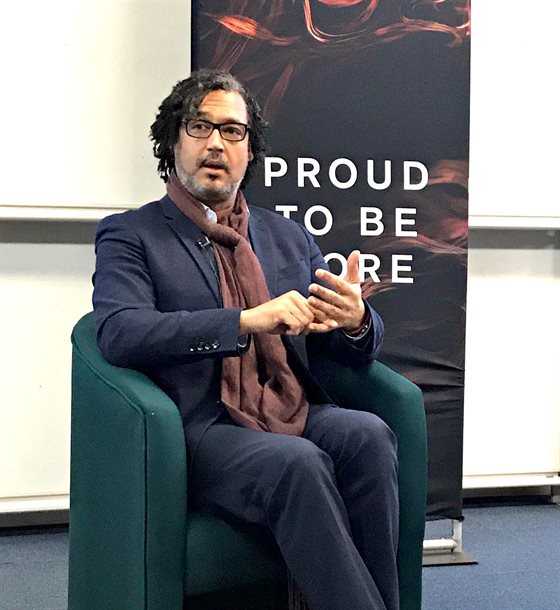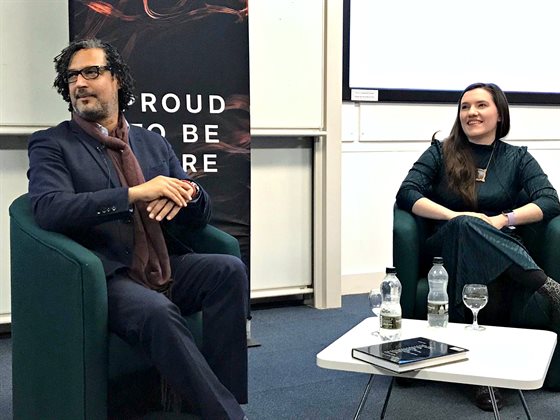Award-winning TV historian David Olusoga has told a De Montfort University Leicester (DMU) audience that he is “almost never listened to” in media, despite his profile.
Speaking on the first night of this year’s Cultural Exchanges festival, David – who presented BBC 2’s A House Through Time – said his arguments to get academic historians involved in media debates were often ignored.

He said: “There is a cultural problem in the news industry. The thing that people are desperate for when enjoying news is context.
“If I am asked to comment on story and I’m the wrong person, I’ll say. But if I recommend this academic or this one, total experts in their field, I will often find that they instead go for a politician.
“I am almost never listened to,” he said. “And I’m a TV producer who understands what makes good TV work. So, it leaves me wondering what more historians need to do to get out of this ‘ivory tower’ people seem to see us in.”
Over the past few years, David’s public profile has soared, having created and presented shows including Civilisation, A House Through Time and Britain’s Forgotten Slave Owners, which brought to light the millions of pounds paid in compensation to slave-owners for loss of their ‘property’ when slavery was outlawed.
The two-parter was awarded the 2016 BAFTA for Specialist Factual programming.

In conversation with DMU’s Dr Serena Dyer, David, who is Professor of Public History at the university of Manchester, asked the packed audience: “Why do we love history more than we appreciate historians?”
He argued that there was a common “mismatch” between the history people love to enjoy as a pastime and the perception of the work done by academics.
He said: “When we look at the top tourist destinations in this country, the sights that we go to on our weekends and our holidays, they’re not waterparks and Disneyworld, they are ancient cathedrals and they are stately homes and art galleries.
“That’s not true of every country, we have an absolute passion for the past in this country.
“But I think that sometimes the academic study of history and the ecosystem of this public history, which does have jobs and opportunities has a mismatch. We don’t explain that one is part of the other.”
He said that too often documents were seen by the media as dull and unengaging before explaining that one of the most successful historical TV programmes of recent years, Who Do You Think You Are?, was based entirely on “dusty old documents which brought celebrities to tears”.
“Documents are magical,” he said. He also argued that public historians needed to embrace the emotional, human aspects of the subject.
“I get lots of messages saying that in a programme like A House Through Time, I am destroying the spirit of history and being over-emotional," he said.
“But if I don’t make the people in history real to me, how can I get people t care about them on the programme?”
Posted on Thursday 27 February 2020